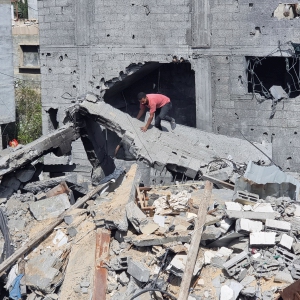Michael T. Klare: Ukraine war claims ‘immoral’ and ‘pure rubbish’
| Published: 07-02-2023 3:22 PM |
I strongly support reasoned debate on the war in Ukraine, but the views expressed by guest columnists Allen J. Davis and Tom Weiner in the June 29 Gazette do not pass the minimum tests of credibility or morality [“Stop double standard; tell truth about Ukraine”]. They claim that NATO’s “dangerous expansion eastward, including our covert role in deposing the duly-elected President Yanukovych of Ukraine in 2014 ultimately provoked Russia to invade Crimea that year and then Ukraine in 2022.”
The problem with this statement is that there is not a single shred of evidence to back it up — and to suggest that the U.S., not Vladimir Putin, is responsible for the illegal invasion of Ukraine is downright immoral. Yanukovych was ousted by a popular rebellion sparked by his repudiation of a vote by the Ukrainian Parliament to pursue membership in the European Union. No doubt U.S. officials were pleased with the rebellion’s outcome, but no evidence has yet surfaced of a “covert U.S. role” in deposing him.
As for the claim that Putin was provoked to invade Ukraine by NATO’s eastward expansion, this is pure rubbish. No one knows what his actual motivations were, but fear of NATO was not among them. We can be certain of this because he allowed the billions of rubles appropriated for equipping Russian forces to fight NATO to be stolen by his oligarch cronies and spent instead on yachts and palatial villas. Regarding their proposal for a peaceful resolution to the war, why should Ukraine be asked by outsiders to “cede” a “land bridge” to Crimea and other slices of their land to the Russian aggressor? Such a stance is both immoral and in outright violation of the UN Charter.
Yes, the Ukrainians may be compelled to make unfortunate compromises to end the killing, but that is for them to decide. The only just outcome that non-Ukrainians can legitimately support is the withdrawal of Russian forces from all Ukrainian territory seized since February 2022, followed by UN-supervised plebiscites in Crimea and Donbas on those areas’ future.
Michael T. Klare, professor emeritus of Peace and World Security Studies, Hampshire College, and Defense Correspondent, The Nation
Northampton
]]>

 My Turn: Gaza and lies
My Turn: Gaza and lies Guest columnist Mariel E. Addis: Pride and prejudice
Guest columnist Mariel E. Addis: Pride and prejudice Guest columnist Gene Stamell: We know what we know
Guest columnist Gene Stamell: We know what we know Jennifer Dieringer: Budget must serve whole city
Jennifer Dieringer: Budget must serve whole city
